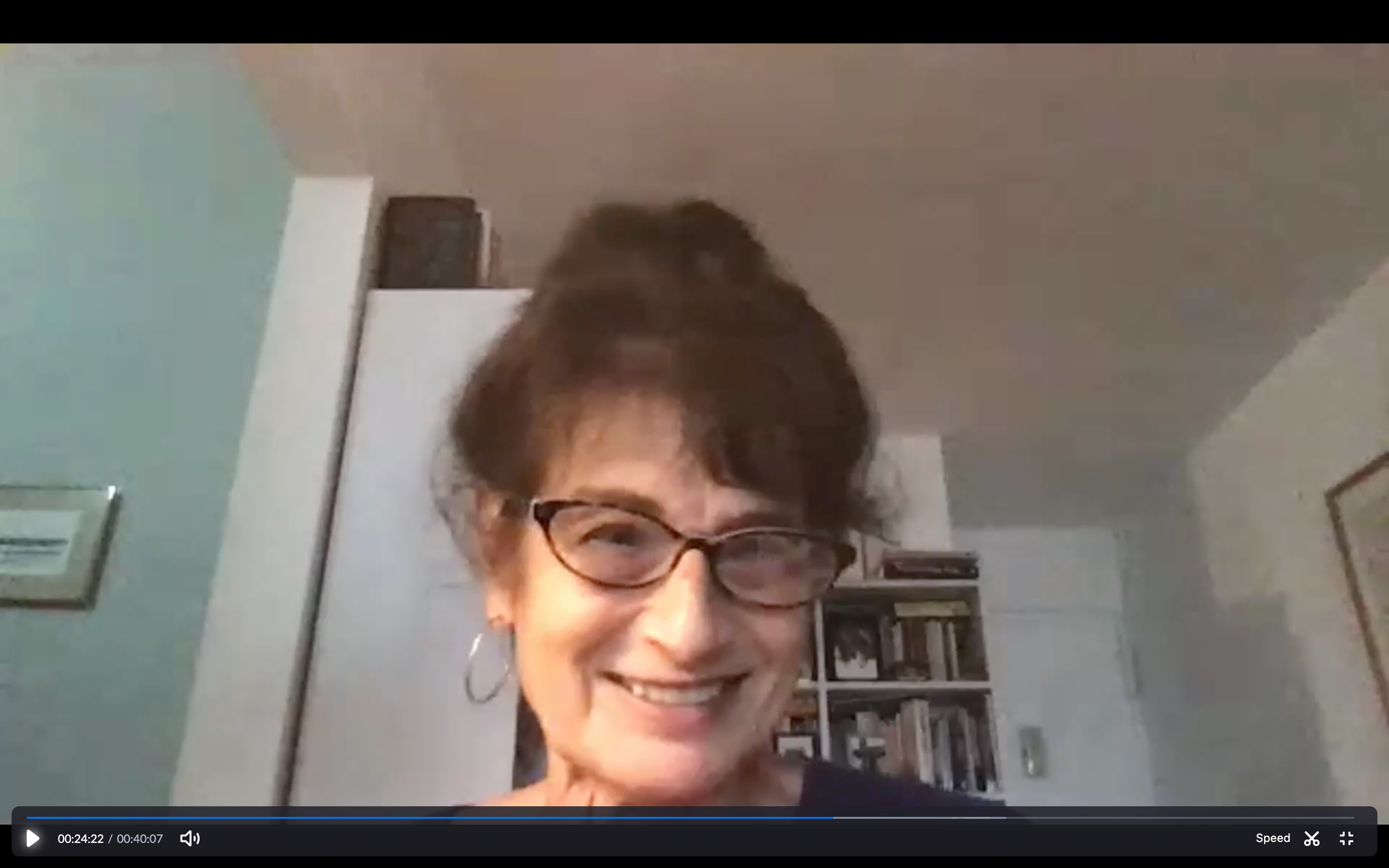JULY 2020 GRADUATION REMARKS BY JOAN SILBER

I want to congratulate the glorious Warren Wilson MFA class of summer 2020. You have been through four semesters (or more) of very hard work in what is probably the most demanding graduate writing program in the country, and you are finishing at a time of worldwide pandemic and acutely needed civic unrest and demands for change. Our gathering together in a virtual residency has been to me a technological miracle. And we’ve done it in our way, so much so that throughout this residency I’ve woken up every day thinking we’re all on campus together in North Carolina and my life in my New York apartment is an illusion.
I want to applaud and thank, especially, the guests here now who’ve supported the graduating writers. Friends and partners and parents and loved ones and kids, families in all senses. You’ve put up with neglect and obsession and crabbiness, references to texts and personalities and terminology you really didn’t want to hear about again, for the sake of someone’s passion to write. You’ve believed in these writers, you’ve made room for them to keep at it, when ordinary life hardly made room for it, and they won’t forget. None of us forget.
I started teaching at Warren Wilson in 1986—I haven’t taught straight through, I took a long break in the middle—but I realized how long ago that was when I remembered—in the first year I saved all my letters by using carbon paper. (There were xerox machines—it wasn’t the Middle Ages– but they were some trouble to get to.) I know more now than I did then, but what I knew right away was that had comrades here, I was with my kind. I made and am still making lifelong friends.
When you leave here, you’ll have the great relief of not having to send any more packets and the new dilemma of not having deadlines you’re afraid to disgrace yourself by missing. JoAnne Beard, a wonderful writer whom I taught with at Sarah Lawrence, gave as her parting advice to graduates: You’ll feel better if you do the work. So do the work. One of my favorite directives.
Nobody has to tell you, the whole thing isn’t easy. I stand before you as a writer who’s had a long zigzagging career. I started out doing fine and then, after the first two books, thirteen years went by when no one wanted to publish a book of mine. I always call it my thirteen years in the desert—at the time of course I didn’t know how long it would last, when the hell it would be over if ever. So I’m the example of you-never-know.
I want to say—everyone should be cheerful looking at me. Except that it could happen again. A writer has to be prepared for everything, a person does. That’s what we write about. Those loops of fate.
During my years in the desert, I did a number of things to distract myself. I considered giving up writing , but it was sort of like saying, I’m going to go eat worms. It wasn’t a freeing notion. And I considered giving up the teaching of writing. I had the perfectly good idea that I might learn American Sign Language and work as an interpreter. I did take an ASL class and I was terrible at it, I was the worst one in the class—I’m not very visual. My better idea, as a way to get out of myself, was to volunteer, and I was a Buddy for Gay Men’s Health Crisis, which meant you showed up once a week to a help a person with AIDS—this was in the 90s, when AIDS was still very much a raging epidemic, and I ended up doing that for 17 years.
I was struck very much by what Amaud said in the tapes we all made of advice for you—he said it’s a lifelong apprenticeship—writing is. I was definitely learning in those years of no book publication. And as we’ve all learned again now, nothing causes you to adjust your perspective like the evidence of death around you. It’s very useful instruction in the scale of things.
I think in some underground indirect way it changed my writing, led me into deeper territory, though not in obvious ways. I always took the process seriously but I understood things better by this time and I think I had a further sense of where a story could go.
Everyone’s path is different. Sometimes now I think that when I was younger—I wasn’t lacking in self-confidence, but I was always waiting to be another sort of writer, one who knew how to do it the right way. It just took a long time to figure out what was my way.
So each of you will be embarked now on some version of that process. You have comrades with you, your fellow Wallies, who will understand your complaints and know how to cheer you on. Nothing could make it clearer than our intercontinental electronic graduation how really quite easy and necessary it is to be attached to each other. So I wish you the joy of those continuing attachments and long rich writing lives ahead.



